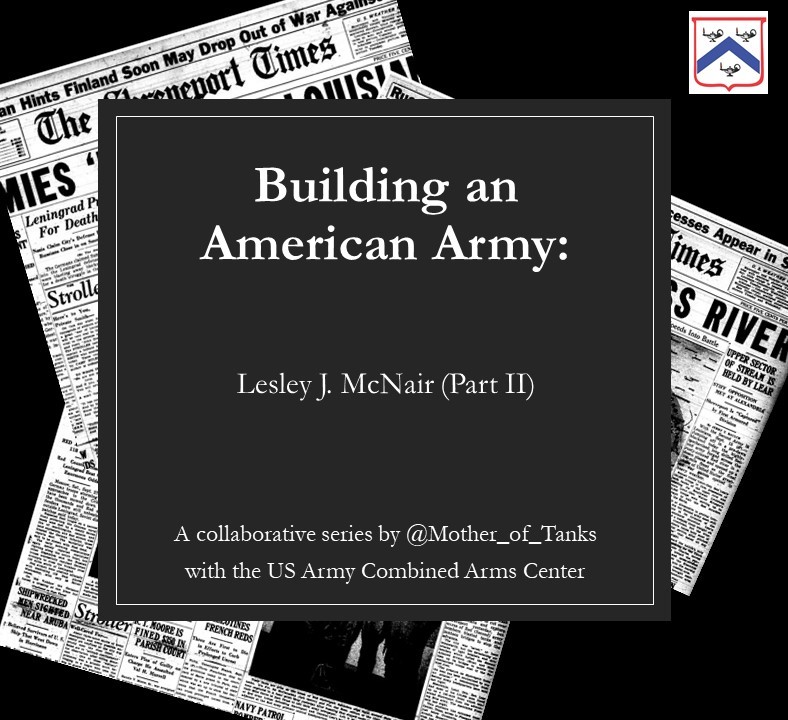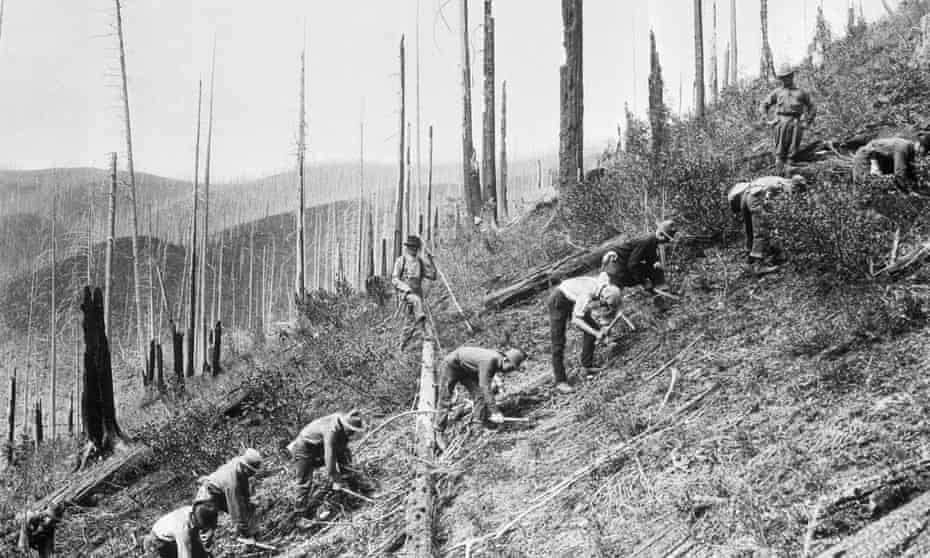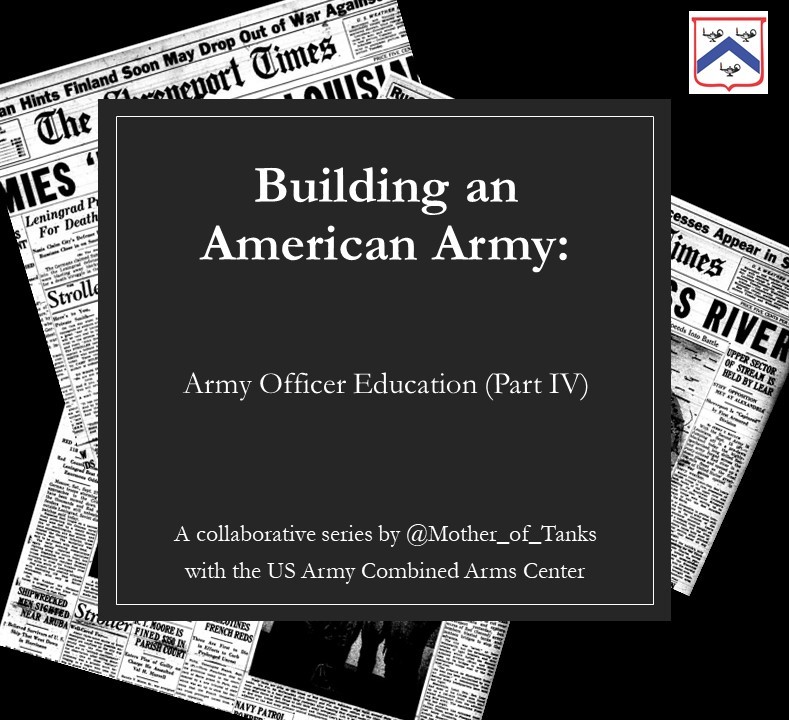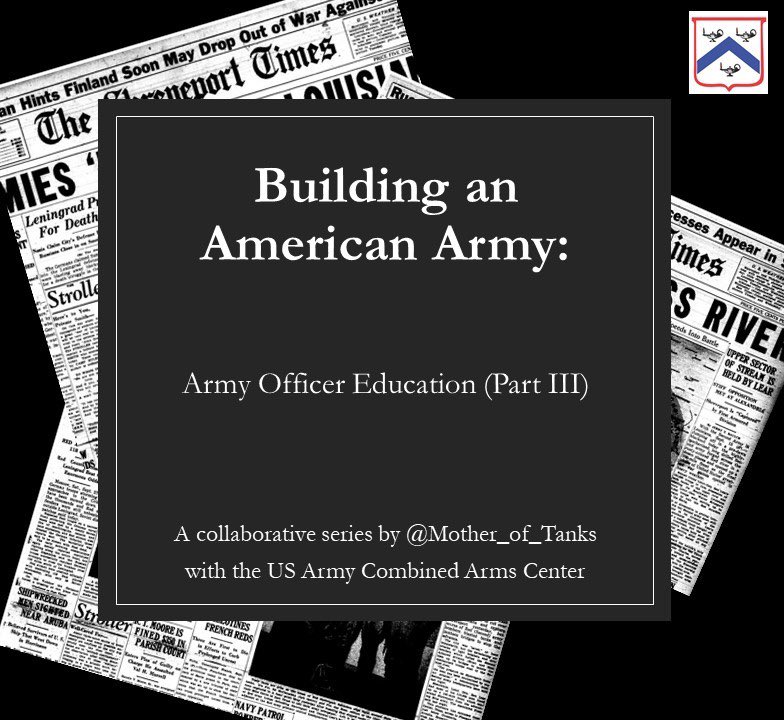
It wasn’t until the latter half of the 1800s that the @USArmy would clearly define the duties and responsibilities of Non-Commissioned Officers (NCOs). Without a “job description” it is difficult to know what to train and equally difficult to measure effectiveness.
Friedrich Wilhelm von Steuben, a Prussian General who helped the Continental Army establish and maintain order and discipline, as well as supply and training methods, compiled a manual of arms and tested this approach during the 1770s. 



There were 5-6 pages dedicated to “Regulations for the Order and Discipline of the Troops of the United States” in this manual written in 1778. Over a century later, in 1909, a dedicated NCO Manual was written, and it had grown to 417 pages. 

The chapter for First Sergeant was 15 pages long; the chapter for Sergeant Major was 54 pages long. americanrevolutioninstitute.org/masterpieces-i…
“These chapters included forms to fill out and maintain, a description of duties, what should and should not be done, customs of service, and things of special interest.” 



There were 2 ½ pages on discipline, stressing “the role of punishment in achieving discipline” with an effort to “reform the offender” and thereby prevent problems. 

“Repeatedly in this section and others, it stressed that the treatment of [junior personnel] should be uniform, just, and in no way humiliating.” 

Of all roles NCOs fill, the role of the “guardian of standards” is the one least affected by changes throughout society and the Army. 

“When NCOs teach discipline today, they pass along to their soldiers the same idea… taught at Valley Forge: that for everything a soldier does there is only one acceptable standard.” 

“As the guardian of standards, the noncommissioned officer must ensure that every soldier in his or her charge meets that single standard of excellence.” 



“Noncommissioned officers must discipline others by first disciplining themselves. They know what standards of conduct are acceptable, and they hold themselves to those standards.” 

“NCOs must discipline themselves to present a positive example at all times. They must keep themselves prepared in the tactics and techniques of their fields.” 

“If NCOs present a negative example, for whatever reason, they encourage their subordinates to violate accepted standards of conduct. Serious discipline problems will soon develop.” 

Modern NCOs have many more options than in the past with regard to upholding standards and disciplining violations. Approaches to directive and nondirective counseling, for example, can help soldiers self-correct before it becomes necessary to involve more formal approaches. 

There are cases where individual discipline is good but collective discipline, as a whole unit, is poor.
“The unit remains nothing more than a group of individuals… If collective discipline develops, however, the unit takes on a character all its own.”
“The unit remains nothing more than a group of individuals… If collective discipline develops, however, the unit takes on a character all its own.”
Units with collective discipline benefit from collective pride. No one has to ask how something should be done – everyone knows.
“The unit accomplishes its tasks and missions efficiently. The unit seems to drive itself, so that officers and NCOs are hardly visible.”
“The unit accomplishes its tasks and missions efficiently. The unit seems to drive itself, so that officers and NCOs are hardly visible.”
We'll talk more about NCOs on Saturday 🙂
If you're just tuning in or you've missed any of the previous threads, you can find them all saved on this account under ⚡️Moments or with this direct link twitter.com/i/events/13642…
If you're just tuning in or you've missed any of the previous threads, you can find them all saved on this account under ⚡️Moments or with this direct link twitter.com/i/events/13642…
• • •
Missing some Tweet in this thread? You can try to
force a refresh




















